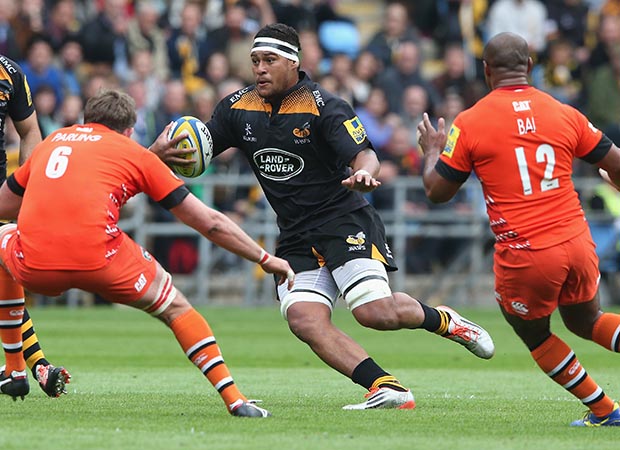 With the domestic season more or less over and sights set firmly on the World Cup, we are once again forced to confront the realities of a professional sport.
With the domestic season more or less over and sights set firmly on the World Cup, we are once again forced to confront the realities of a professional sport.
Arguably, the greatest opportunity any sports person can achieve is to be asked to represent their country in a global event. Whether that is in an international match or a tournament like a World Cup or the Olympics, for a sportsman or woman the aim should be to get selected for what could be a once in a lifetime opportunity to run out on a world stage and compete with the best the world has to offer.
Yet when the World Cup kicks off on September 18 there will be a large number of players who should be representing their countries who will be twiddling their thumbs, watching and waiting for the club season to begin.
Since the dawn of the professional game every World Cup has been blighted by the same thing, a situation that really only exists in rugby where players are forced to choose whether to accept the ultimate honour of playing for their country for virtually nothing, or stay at the club.
Mostly it is the South Sea Islanders – Tonga, Fiji and Samoa whose players ply their trade all over the world – but it isn't just restricted to those countries. Argentina and Georgia have also suffered in the past. In fact you can say that virtually any of the poorer countries that play rugby have suffered the unfair disadvantage of not being able to offer players compensation for the money they would lose by playing for their country.
Even so, a number of players would be prepared to make the financial sacrifice for the few weeks of the competition were it not for the pressure they are put under by their employers, also the possible risk of an injury which could be uncompensated as their countries cannot afford to pay.
In terms of the RWC, this invidious situation is made worse by the fact the rich Unions like England will be paying what would seem like a king's ransom (roughly the equivalent to an average Premiership player's non-international annual wages) to each of the squad members with a potential added bonus if they win.
If, as most people agree, an enforced wage cap is effectively the only way you can achieve a level playing field at club level, then the same should be true in the international game.
If World Rugby were to agree that all countries that play in the RWC are allowed to pay a nominal fee of only £500 per player per game without bonuses and helped fund the minor nations' budgets and player insurance, it might help bring the ‘lost' players on board.
There would be a protest from the Rugby Players' Association (RPA) but as our international players are among the best paid in the world it shouldn't impact too much on them. Besides, if they won they would be very well off because of the financial spin-offs of being a World Cup winner, as Will Greenwood said at the final whistle in 2003, “We are all going to be rich”.
There may also be an additional bonus in terms of a reduction in the number of players seeking to change their international status and be more content to play for their real home nation.
There can be no doubt that the circa £200,000 payment per squad player from the RFU for all the England matches in a season, on top of your club salary, is a big incentive for players like Wasps' Fijian- born-an-raised No.8 Nathan Hughes to qualify for England, rather than play for cash-strapped Fiji.
The qualifying period of three years is a left-over from the amateur days when players either migrated because of their non-rugby related job or took a sabbatical like Martin Johnson (New Zealand) and Dean Richards (France) in another country.
Few players changed their allegiance while actually playing in their adopted country but as the money arrived so have the players. Twenty years on and nothing has changed. If you are a talented young player in the Islands or elsewhere you are likely to be approached and offered the chance to play abroad for a wage that most of the population of your homeland can only dream about.
In all the major rugby playing nations there are a large number of ‘immigrant' players at all levels of the game, many of whom arrive with their family and start a new life – some illegally.
Manu Tuilagi arrived age 14 on a six month holiday visa and six years later had to rely on the RFU asking the Home Office to allow him to stay, which as he was an England player was granted.
As Tuilagi, like the Vunipola brothers, grew up in England, a change in the rules to extend the residency qualification from three years to something more in keeping with the modern game would be unlikely to affect their ability to play for England.
However, if World Rugby wants to stop the drain of talent from the emerging nations, they must persuade the rich Unions that it is not in the best interests of the world game for them to be cherry picking talented youngsters from their homes.
While it may change the life of a chosen few, it diminishes the opportunity for the home-grown talent of the seven or eight rich Unions and lowers the standard of the game within the other 100 Unions that make up World Rugby.



























